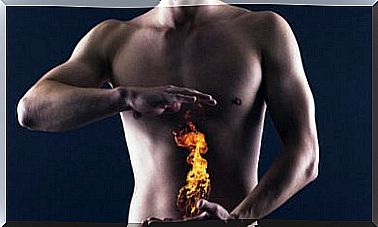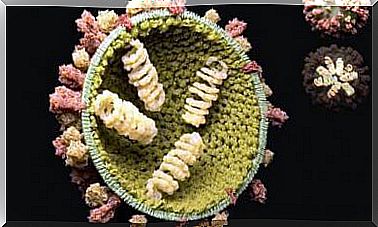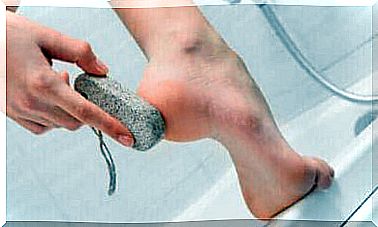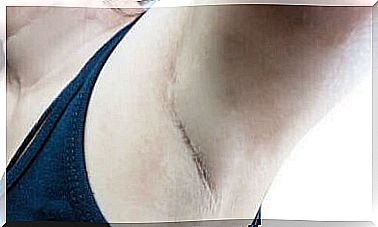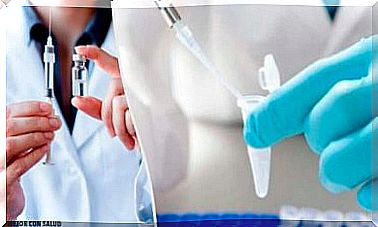Jaw Joint Dislocation: The Various Causes
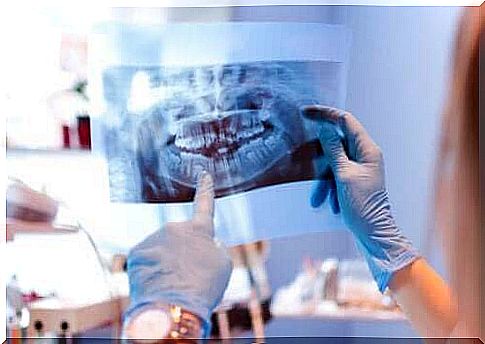
Have you ever experienced jaw dislocation? Usually the many tendons and ligaments hold the jaw in place. However, they can fail, leading to this condition.
It occurs when one of the components of the joint, called a condyle, separates from the joint surface and moves over the temporal bone. It is very common for this displacement to occur towards the anterior plane of the joint, but it can occur in all directions.
Reasons why the jaw can be displaced
Before we start talking about possible causes of jaw joint dislocation, it is important to remember that it is an unusual pathology. In fact , several studies claim that it represents only about 3% of all luxations. This is the main reason why there is so much disagreement about the main reason.
What we can say for sure is that the causes will depend on the type of luxation. The most common cause of an acute displacement is trauma within minutes or hours afterwards.
In that sense, situations consisting of a direct blow in this area can trigger jaw joint dislocation. However, the possibility must not be ruled out that this damage may have occurred spontaneously. It can thus originate from different situations that involve opening the mouth a lot or keeping it open for a longer period of time. Here are some examples:
- Yawning
- Laugh
- Vomiting
- Dental treatment
- Endotracheal intubation
Chronic recurrence is another type of jaw joint dislocation. This is defined as a constant variation over time and involves wear and tear of the joint components. In this case, the most common causes of a dislocated jaw are spontaneous.
Similarly, the jaw can easily be displaced in people with bruxism or some psychiatric disorder. This is due to the constant stress their jaws are exposed to.
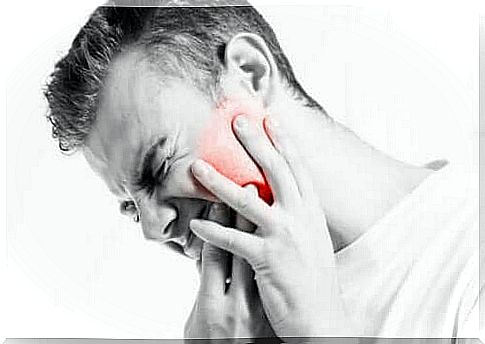
How to recognize jaw dislocation?
People with this lesion often experience sudden pain in the area around the jaw, usually a kind of sting that restricts movement. In addition, the joint chops when you try to move it.
In short, the two main symptoms are pain and clicking in the joint. You can also notice the deviation of the jaw, either towards the healthy sides or forward.
Many patients report that they are unable to close their mouths or achieve occlusion between their teeth. However, the signs may vary. In fact, the situation develops significantly within a few months in some patients since they did not experience any discomfort.
A physician must use all elements of the patient’s medical history to arrive at a correct diagnosis. In that sense, they must examine the properties of the pain and conduct a thorough physical examination of the articulation. X-rays will often be needed as an affirmative method.
What is the treatment?
There is medical treatment available for a displaced jaw. You should therefore talk to your healthcare provider if you suspect you may be suffering from this problem.
- In the case of acute dislocation, the condition can in most cases be improved by means of the Nelaton or Dupuis maneuver. These will vary if it is a bilateral or unilateral variant, respectively.
- Both maneuvers have the same principle. A doctor will insert the thumbs into the oral cavity and place them on the lower jaws. Furthermore, they push down while trying to lift the chin, which will generate a negative pressure or tension. This will move the chain link back to where it belongs.
- In some cases, especially among stressed patients, local anesthesia will be needed to facilitate the process. Once the doctor has the joint back in place, a bandage may be needed to stabilize the area for a few days.
- In cases of more severe acute or chronic recurrent dislocations, surgery may be necessary. However, the use of botulinum toxin has been shown to be beneficial in avoiding surgery in certain cases.
- Finally, physiotherapeutic treatment will help restore the joint’s functionality. It is thus recommended in cases of chronic recurrent dislocations.

What to do if you suffer from jaw joint dislocation?
This condition is not too serious for your health, but it can be very irritating and reduce your quality of life since it is difficult to continue with your normal routine. However, the first thing you need to do is talk to your doctor if you suspect a dislocation of the jaw.
The maneuvers and appropriate treatments with anti-inflammatory and analgesic medications we mentioned above are the only ways to reverse this problem. Try going to the same doctor if there is a recurrent condition so that they are familiar with your case and can indicate the most appropriate steps to follow.


